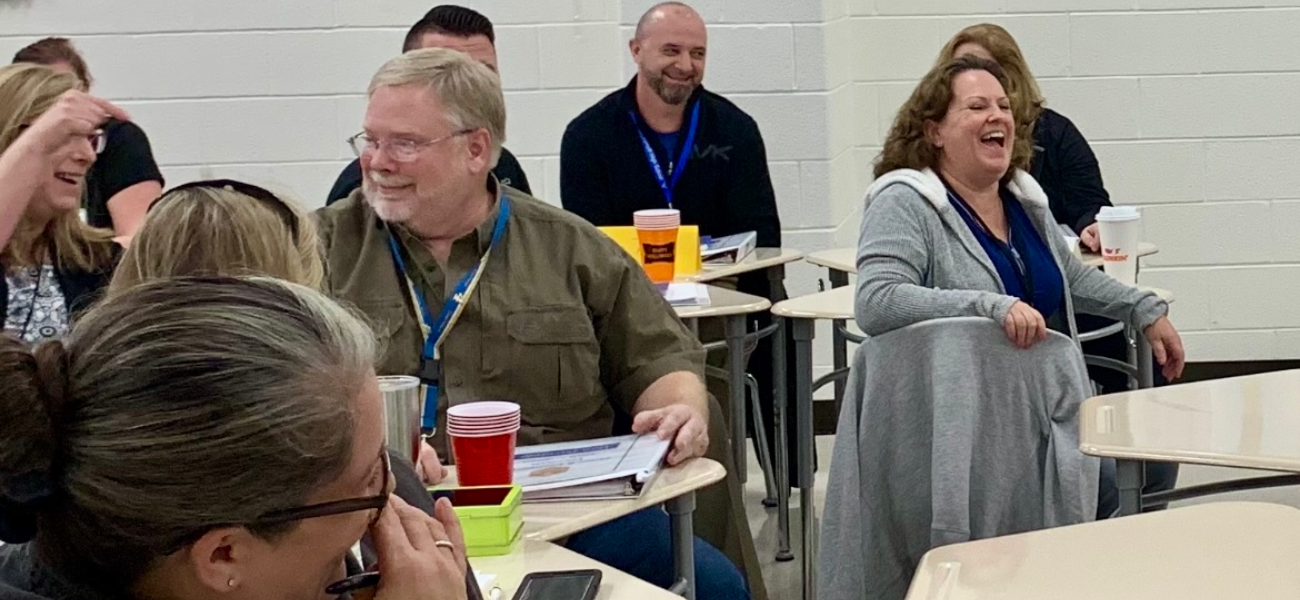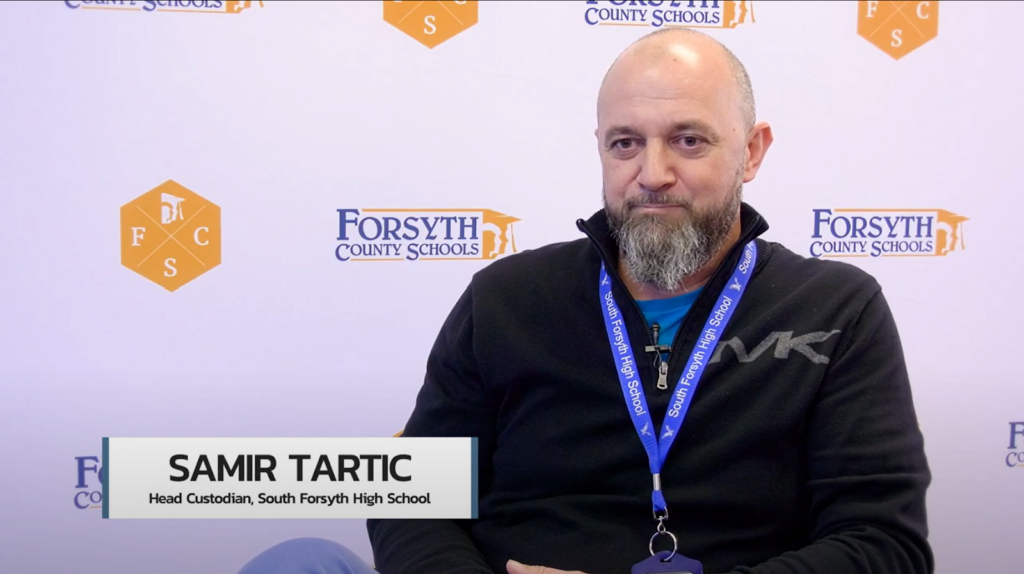Stay ahead of the curve as a political insider with deep policy analysis, daily briefings and policy-shaping tools.
Request a DemoCOMMENTARY: The employees in your local school that you didn’t know were impacting your day

GLISI's Class A program specifically targets growing the leadership capacity in the leaders of your classified employee teams. (Credit: GLISI)
Before the sun rises on any given weekday, there is a group of people already awake, whose work is laying the foundation for how well — or how chaotic — an entire community’s day will go.
School bus drivers, cafeteria workers and custodians are the community helpers you didn’t even know were impacting all of us – not to mention how they profoundly impact students’ school experience.
While we commonly think about teachers and principals as the adults who work in schools, there are as many or more people employed by schools as “classified staff” — that is, employees who do not require certification or licensure to do their jobs.
Schools are not immune from the same labor shortages that have meant longer wait times at your favorite restaurant, or shipping delays due to lack of truck drivers. The U.S. Department of Labor noted 4.5 million workers quit their jobs in 2021 with the highest concentration of workers quitting in the food service, health care and transportation sectors. In other words, classified staff.
Why are these workers particularly vital for schools and communities?
Over 60% of Georgia’s 1.7 million public school students rely on buses for transportation to and from school. When the bus doesn’t come, it impacts parents’ and caregivers’ ability to work. It impacts traffic where parents choose to drive instead of sending students on the bus since each bus, when filled to capacity, replaces 36 family vehicles on the road. At school, cafeteria workers ensure students are fed. Research has linked hunger to behavior disruptions and lower academic performance. And research suggests the physical school environment — maintained by custodians — has an impact on student effort and school climate, or the sense of welcome, camaraderie, and safety that students and teachers experience while at school.
But even more than these technical reasons, classified workers are day-makers for children. Bus drivers are the first adult to greet a child as he or she steps onto the bus. Custodians are often the smiling face and warm greeting in the hallway as a child walks to class. Cafeteria workers are present in those moments of a school day when a child is just being human — – not a learning machine, completing assignments, earning points, getting the right grade — – but just eating and hanging out with friends.
Often, it is classified staff who most humanize the experience of school so that students don’t just feel like they are entering a factory, being shuffled to a classroom where “learning” happens. Interactions with classified staff are also learning. A child learns: ‘I am important to someone here.’ Someone notices me and is glad I’m here.’ ‘I can depend on all the adults here (not just a teacher) to keep me safe and take care of me when I am away from my family.’ Or maybe a child learns, ‘I’m invisible.’ ‘I don’t matter to anyone here.’ ‘No one wants to hear from me and no one would notice if I weren’t here.’
As the labor shortage impacts schools, it is that much more difficult to find and retain classified staff who create more of those positive experiences. Meanwhile, many schools and communities have not always prioritized creating that feeling of welcome and appreciation for classified staff that we hope they prioritize for students. People of all ages want to know that their time matters, that their effort matters, that they matter.

To address this challenge, one approach some districts in Georgia are taking is to grow the leadership skills and strengths of classified staff. The program, called Class A, was collaboratively developed by The Georgia Leadership Institute for School Improvement ( GLISI) and leaders in Forsyth County Schools. It is a year-long experience designed for classified staff to engage in learning with their peers along with structured conversations with their supervisors. Topics include: “Understanding your strengths as a leader,” “Leading teams,” and “Practicing how to listen to and provide constructive feedback to others.”
Early evidence points to enhanced appreciation for employers, a high rating of workplace quality, greater job satisfaction and enhanced effectiveness, according to their supervisors. There has been 100% employee retention among participants in the three districts where it has been implemented.
While schools cannot provide opportunities to work from home for classified staff, workplace quality and well-being benefits are incentives that successful organizations are offering to attract workers in all sectors.
As schools are one of the largest employers in many rural communities in Georgia, this strategy for enhancing and encouraging classified workers is important not only to find and keep essential workers, but as a culture-changing and community building approach. Schools can be a touchpoint in communities for repairing trust and building connections across lines of difference. Providing support for classified workers’ professional growth and more visibly valuing their contributions is a critical way to walk the talk of creating cultures of belonging and learning, leading to school and community success.
What can people do to support classified staff? If you have children in school, learn the names of their bus drivers, custodians and food service workers. Greet them by name when you see them and teach your children to address them warmly and respectfully by name.
Say thank you. Ensure that collections for holiday gifts for teachers include gifts for classified staff. Exercise patience, consideration and appreciation for workers in transportation, food service, and custodial roles in your own work place and favorite businesses.
***
Leslie Hazle Bussey, Ph.D., is chief executive and executive director of The Georgia Leadership Institute for School Improvement. Find out more about the Institute at glisi.org. Follow State Affairs on twitter @stateaffairsga. Send comments on this commentary to [email protected].
***
Header photo: Participants in GLISI’s Class A program working to grow their leadership capacity. (Credit: GLISI)
Professionals still face licensing delays amid state’s transition to online system
The Gist Georgia’s professionals and business owners are still struggling to obtain professional licenses in a timely manner. As the Secretary of State’s Office rolls out its new Georgia Online Application Licensing System to expedite the process, the efficiency of this new process is being put to the test. What’s Happening Thursday morning at the …
Controversy over AP African American Studies class grows
Rashad Brown has been teaching Advanced Placement African American Studies at Atlanta’s Maynard Jackson High School for three years. He’ll continue to do so — even though the state’s top education official removed it from the list of state-funded course offerings for the upcoming school year. While Brown prepares to start teaching his class on …
Students, teachers, lawmakers blast decision to end AP African American history classes
ATLANTA — A coalition of lawmakers, civil rights leaders, clergy, educators and students Wednesday called on the state’s education czar to rescind his decision to drop an advanced placement African American studies class from the state’s curriculum for the upcoming school year. “This decision is the latest attack in a long-running GOP assault on Georgia’s …
Kamala Harris’ presidential bid reinvigorates Georgia Democrats
Georgia Democrats have gained new momentum heading into the November election, propelled by President Joe Biden’s decision to bow out of his reelection bid and hand the reins to Vice President Kamala Harris. The historic decision, announced Sunday, is expected to prove pivotal in the national and state political arenas and breathe new life and …



